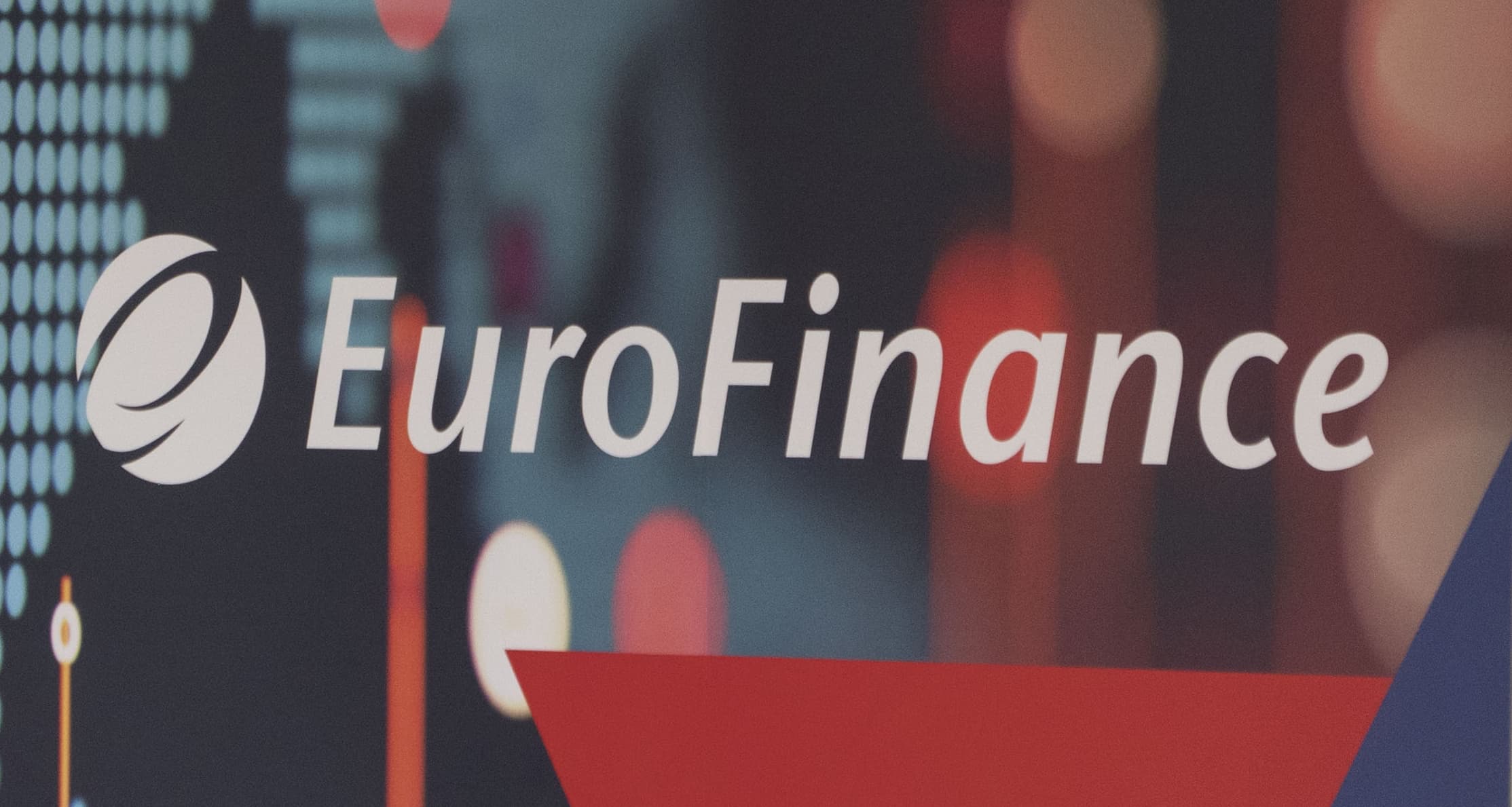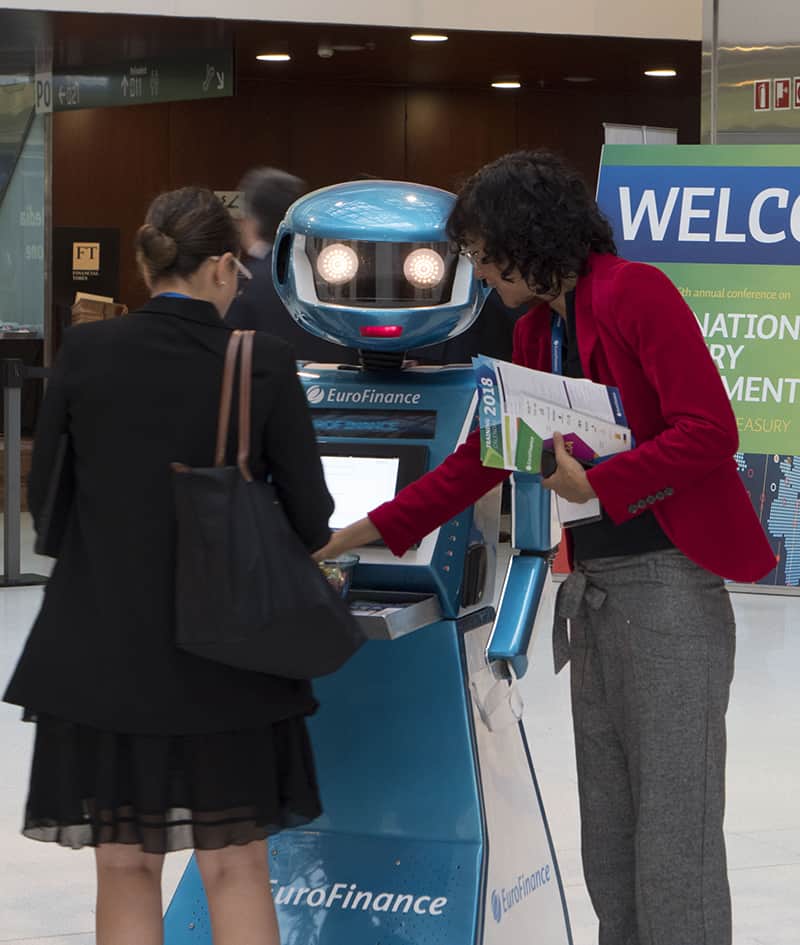Topics like blockchain, quantum computers capable of cracking Bitcoin code in just 60 secondsand geopolitics dominated the plenary session.

With the theme of “intelligent treasury” for this year’s EuroFinance International Cash & Treasury Management conference, which opened in Barcelona on Wednesday, one shouldn’t be surprised to find treasurers interacting with robots—albeit hesitantly—at the entrance to the event.
Is this an indicator of what’s to come—an intelligent treasury operation commanded by robots? Interestingly, the opening speaker of the first day of the conference was an economist that builds robots or drones, Dr. Pippa Malmgren, trend spotter and co-founder of H Robotics in the UK.
Malmgren’s message wasn’t so much that the robots are coming, but more that a new money and accounting system based on the blockchain is on the horizon. Drawing parallels with the UK financial system of tally sticks that existed until paper money was introduced in 1834, Malmgren said “We’re about to abandon the entire system of money and accounting, just as we did in 1834. We are moving to electronic money and the blockchain.”
But with the blockchain’s ability to record everything, Malmgren said we need to be careful what kind of world we build, particularly in terms of the infrastructure used by governments to manage their own citizens.

Instead of focusing on “data points [figures and statistics],” Malmgren said treasurers needed to focus more on keeping up with what is happening with technology. Quantum computers that can crack a Bitcoin code in 60 seconds are just around the corner, and the fourth industrial revolution will have impacts that EuroFinance’s audience have yet to really comprehend. “The nation that leads artificial intelligence, will lead the world,” says Malmgren.
Geopolitics also featured heavily in the opening plenary of the conference. “Brexit, the global financial crisis, the Catalan referendum, how do we keep missing these events?” asked Malmgren, venturing that perhaps it is because we are using financial models built in the 1970s and 1980s to predict what is going to happen in future.
She encouraged treasurers to reflect on what people are experiencing—the size of candy bars and Coca-Cola cans are shrinking—which can often be a better indicator of what is going on in an economy, than the traditional data points treasurers rely upon.
“Mexico is the new China,” says Malmgren. “Wages are 20% to 40% cheaper and they have US quality control standards.” She also pointed to China’s Belt and Road Initiative (otherwise known as One Belt, One Road). “China is afraid of inflation because they can’t feed themselves,” says Malmgren. “One Belt, One Road, is about protecting themselves from inflation.”
Essential Analytics
Treasurers in the audience were probably relieved when the conversation eventually returned to the stuff they’re used to talking and thinking about, inflation forecasts, liquidity pooling structures and currency fluctuations.
When it came to the “essential analytics,” which were delivered by a bunch of economists, treasurers were delivered a mixture of both good and bad news: The chances of the eurozone breaking up now appears less remote, but one of the biggest risks to the global economy is US policy errors under the Trump administration, said Jamie Thompson of Oxford Economics.
Naomi Holland, assistant treasurer with Intel Corporation, said the Catalan independence referendum and the uncertainties still surrounding Brexit meant that treasurers needed to support potential business disruption if a company were go to down, for example, which could mean looking at their receivables book more closely and exploring new markets and financing structures.
Although there has been no “Brexit recession” as such, Holland said treasurers with deal flows to and from the UK and the EU needed to prepare as best they could. It may entail changing their liquidity pooling structures, particularly if the header account is in the UK. Treasurers will need to maintain constant contact with their banking partners, she says, and for some, Brexit may be the catalyst they need to implement centralized pooling and accounting structures.
With emerging markets raising $100 billion in capital, Holland said treasurers need to support their company’s expansion into new markets, but they also need to be aware of capital controls that prevent them from getting money out and whether their banking partners can support them in these markets.



